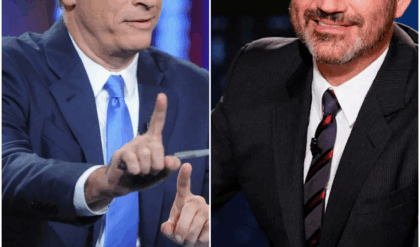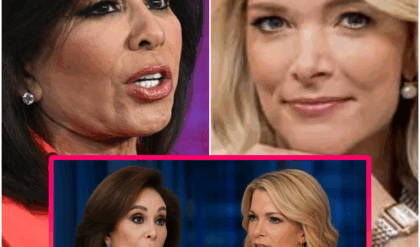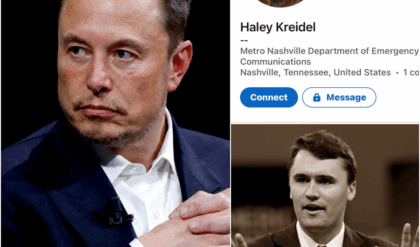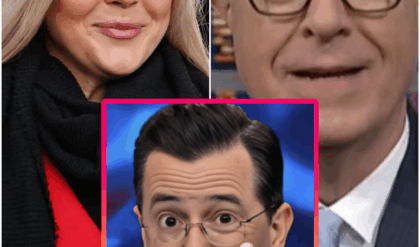Piers Morgan vs. Jimmy Kimmel: How a Suspension Sparked a Media Firestorm and an 8X Viral Boast
The American late-night landscape, usually dominated by celebrity interviews and comic monologues, has erupted into a cultural firestorm involving politics, tragedy, and the ever-volatile world of social media metrics. At the center of it all are Jimmy Kimmel, the long-time host of Jimmy Kimmel Live!, and Piers Morgan, the outspoken English broadcaster who never misses a chance to fan the flames of controversy.
Kimmel’s show, suspended indefinitely after a contentious monologue about the murder of conservative activist Charlie Kirk, has become a lightning rod for outrage, while Morgan has used the moment to position himself as a triumphant voice in the debate. In a series of blistering posts on X (formerly Twitter), Morgan not only criticized Kimmel’s remarks but went further, boasting that one of his own posts had drawn eight times the viewership of Kimmel’s nightly broadcast.
The episode is more than just a clash of egos. It is a snapshot of how tragedy, politics, and digital media collide in modern America — with reputations, corporations, and even free speech principles hanging in the balance.
The Spark: Kimmel’s Monologue on Charlie Kirk’s Death
The controversy began on the September 15 episode of Jimmy Kimmel Live!, when Kimmel addressed the shocking assassination of Charlie Kirk, the 31-year-old conservative activist and founder of Turning Point USA. Kirk had been fatally shot while speaking at Utah Valley University, sending ripples through the political landscape.
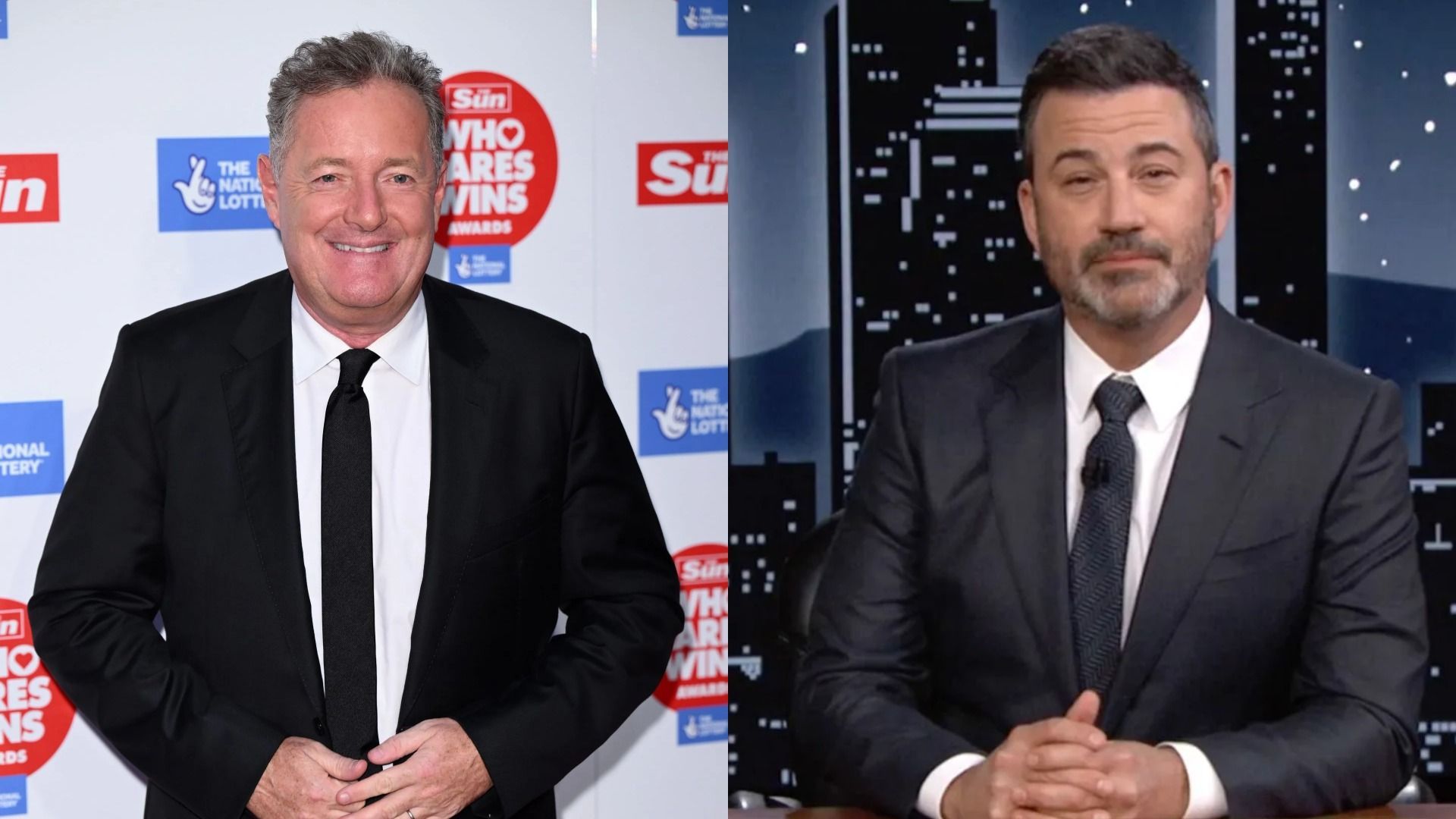
During his monologue, Kimmel criticized what he described as efforts by “the MAGA gang” to reframe the suspect as something other than a far-right extremist.
“We hit some new lows over the weekend with the MAGA gang trying to characterize this kid who killed Charlie Kirk as anything other than one of them, and doing everything they can to score political points from it,” Kimmel said.
What might have been received as biting satire in another context landed with explosive force amid the raw grief surrounding Kirk’s murder. Critics immediately accused Kimmel of politicizing a tragedy and misrepresenting the suspect’s motives.
The Fallout: Broadcasters Push Back
Within days, the backlash reached a fever pitch. On September 17, Nexstar Media Group — one of the largest operators of ABC affiliates in the United States — announced it would preempt Jimmy Kimmel Live! indefinitely.
“Mr. Kimmel’s comments about the death of Mr. Kirk are offensive and insensitive at a critical time in our national political discourse,” said Andrew Alford, President of Nexstar’s broadcasting division. “We do not believe they reflect the spectrum of opinions, views, or values of the local communities in which we are located.”
Disney, the parent company of ABC, soon followed suit, pulling the show from air for what it described as an “indefinite” suspension. Reruns replaced Kimmel’s nightly program as executives deliberated next steps.
The suspension marked one of the most dramatic corporate responses to a late-night controversy in years, echoing the abrupt cancellations of figures like Roseanne Barr but with an even heavier political overtone.
Piers Morgan Enters the Arena
Never one to let an opportunity pass, Piers Morgan — former CNN host, British tabloid provocateur, and current broadcaster — weighed in swiftly. On September 18, he posted on X:
“Jimmy Kimmel lied about Charlie Kirk’s assassin being MAGA, this caused understandable outrage all over America, prompted TV station owners to say they wouldn’t air him, and he’s now been suspended by his employers. Why is he being heralded as some kind of free speech martyr?”
Morgan’s post caught fire, drawing millions of impressions and reigniting debates about whether Kimmel was unfairly punished or rightly held accountable.
Then, on September 20, Morgan doubled down. In another post, he claimed his commentary had eclipsed Kimmel’s ratings.
“This post has now been viewed by 8x as many people as watch Kimmel’s show,” Morgan wrote.
By that point, his original post had racked up more than 9.2 million views — a digital gut punch to a television institution that typically draws under 2 million nightly viewers.
Free Speech or Corporate Censorship?
The escalating drama sparked a wider debate far beyond Kimmel or Morgan. To supporters of Kirk and conservative audiences, the suspension represented accountability. To critics, it was corporate censorship that blurred the line between enforcing taste and punishing political viewpoints.
“This is dangerous,” warned Dr. Maria Stevens, a media ethics professor at NYU. “If broadcasters can demand apologies or even political donations before airing content, we are essentially handing corporations the power to dictate who gets to speak.”
Indeed, Sinclair Broadcasting — another powerhouse of local television — has also signaled it would not air Kimmel without a public apology to the Kirk family and even a financial donation to Turning Point USA.
This demand stunned observers, raising the specter of corporations wielding not just editorial control but political leverage.
‘Jimmy Kimmel Live!’ has been suspended indefinitely following comments made by Kimmel regarding Charlie Kirk’s death. pic.twitter.com/mjiGRd68X8
— Pop Base (@PopBase) September 17, 2025
A Clash of Cultures
At its core, the Kimmel-Morgan saga underscores the fragility of civil discourse in today’s polarized environment.
For Kimmel, the suspension represents a career-threatening rebuke at a time when late-night TV already struggles with dwindling ratings and digital competition. For Morgan, it is an opportunity to amplify his brand as a truth-telling outsider — one who can claim victory by both attacking “woke” Hollywood and out-performing it on social media.
For Disney and ABC, the stakes are even higher. If they reinstate Kimmel, they risk alienating affiliate broadcasters and advertisers. If they cancel him outright, they risk alienating loyal liberal viewers and surrendering a chunk of cultural influence.
The irony is that both sides are wielding the same weapon: outrage. Kimmel’s satire, Morgan’s mockery, Sinclair’s demands, and Disney’s suspension all feed the same cycle of division and spectacle.
What’s Next?
Several scenarios loom. Kimmel could apologize, though doing so might be seen as capitulation. Disney could bypass traditional broadcasters altogether, shifting his show to streaming platforms like Hulu or Disney+. Or ABC could attempt a carefully worded compromise, issuing a corporate apology while allowing Kimmel to return with minimal damage.
Regardless of the outcome, the precedent is clear. The battle over Jimmy Kimmel is not just about one joke or one host — it is about who controls the conversation in America’s media ecosystem.
A Viral Boast with Lasting Ripples
Piers Morgan’s claim that his post drew “eight times” more viewers than Kimmel’s show is more than a personal jab. It symbolizes the shifting power from television to social media, from polished monologues to raw, viral commentary.
Whether Kimmel returns, apologizes, or fades from the late-night stage, the controversy will linger as a cautionary tale. The suspension has laid bare the tensions between free expression, corporate responsibility, and the weaponization of outrage in an era when every word, every joke, and every post can ignite a firestorm.
For now, Kimmel remains off the air, Morgan remains triumphant online, and America remains caught in the echo chamber — where an English broadcaster’s viral boast can overshadow decades of late-night tradition, and where the battle over who gets to speak is louder than the jokes themselves.
